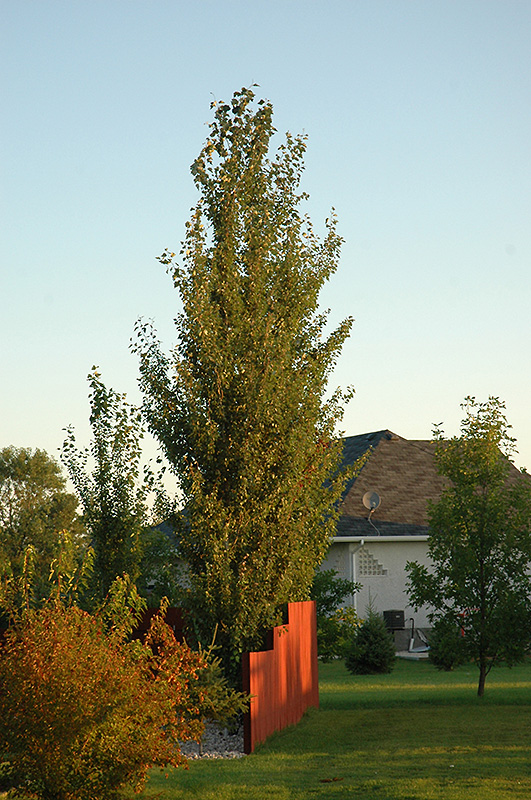Plant Finder
Height: 50 feet
Spread: 10 feet
Sunlight:
![]()
Hardiness Zone: 2b
Other Names: Hybrid Poplar
Description:
An extremely tall and narrow pencil-like tree, used primarily as a sharp vertical accent or in a row as a very tall screen; fast growing, more disease resistant than Lombardy poplar, tends to sucker with age; one of the toughest of all columnar trees
Ornamental Features
Tower Poplar is primarily valued in the landscape for its rigidly columnar form. It has rich green deciduous foliage. The heart-shaped leaves turn yellow in fall.
Landscape Attributes
Tower Poplar is a deciduous tree with a strong central leader and a narrowly upright and columnar growth habit. Its relatively coarse texture can be used to stand it apart from other landscape plants with finer foliage.
This tree will require occasional maintenance and upkeep, and usually looks its best without pruning, although it will tolerate pruning. Gardeners should be aware of the following characteristic(s) that may warrant special consideration;
- Invasive
- Disease
Tower Poplar is recommended for the following landscape applications;
- Vertical Accent
- Hedges/Screening
- Windbreaks and Shelterbelts
Planting & Growing
Tower Poplar will grow to be about 50 feet tall at maturity, with a spread of 10 feet. It has a low canopy with a typical clearance of 4 feet from the ground, and should not be planted underneath power lines. It grows at a fast rate, and under ideal conditions can be expected to live for 60 years or more.
This tree should only be grown in full sunlight. It is an amazingly adaptable plant, tolerating both dry conditions and even some standing water. It is considered to be drought-tolerant, and thus makes an ideal choice for xeriscaping or the moisture-conserving landscape. It is not particular as to soil type or pH, and is able to handle environmental salt. It is highly tolerant of urban pollution and will even thrive in inner city environments. This particular variety is an interspecific hybrid.

